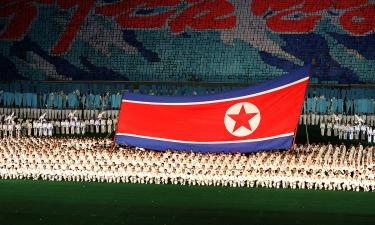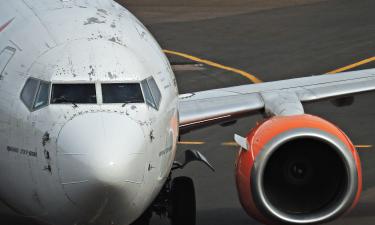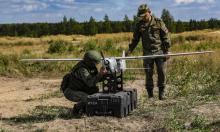Fradkov: Future radiant for CIS
At a recent session of the CIS Council of Heads of Government in Cholon-Ata (Kyrgyzstan), participants signed 28 documents on cooperation within the Commonwealth, and this alone points to the productive nature of the meeting. As RIA Novosti was told at the CIS executive committee, among other things the session approved an agreement on the introduction of an international weighing certificate for cargo transport vehicles on the territories of Commonwealth countries and a decision on the fulfilment of CIS states' financial obligations and on financing the measures aimed at creating and developing a joint air defence system.
Russia's Prime Minister Mikhail Fradkov ruled out that territorial disputes existing within the CIS might escalate into a confrontational conflict between Commonwealth members. At the same time, "the CIS's future depends on ourselves," he stressed, adding that he personally viewed it as radiant.
CIS government leaders discussed economic development and joint efforts against organised crime, terrorism and illegal migration.
A number of CIS countries - Belarus, Kazakhstan, Russia and Ukraine - are vigorously working to create a common economic space, Kazakhstan's Prime Minister Danial Akhmetov said after the session. He indicated that current negotiations are proceeding "rather effectively". A common economic space presupposes a common labour and finance market and a lot more. Kazakhstan's premier said the future common economic zone may include other CIS countries, for example, Kyrgyzstan. "We will only welcome this," Akhmetov assured his colleagues.
Over recent years faultfinders have persistently forecast an early demise for the CIS as an absolutely ineffective structure. But years went by, yet the Commonwealth showed no sign of collapsing. Indeed, lately it has been quickly recovering. As Russia's economic and geopolitical positions improved, former Soviet republics showed an increased interest in it. And this is not surprising, because decades spent together in the USSR could not have been forgotten overnight. Besides, technical and technological resources of the former Soviet republics are interdependent.
But this does not mean that CIS mechanisms are impeccable and do not need reforming. In the opinion of Alexander Lebedev, deputy chairman of the Russian State Duma's committee on CIS affairs, the Commonwealth's machinery is outdated in terms of personnel, structure and procedure. There is, for example, the CIS Development Bank. "Has anybody heard of it?" asked Lebedev, and replied himself: "No." But it has a status and money. However, it has been doing nothing all these ten years since it was founded. It should be converted into a bank of regional cooperation to help promote regional projects. Such projects are plenty - in the sphere of transport, infrastructure, etc.
To judge by everything, this point of view is also shared by the Russian government in the person of Mikhail Fradkov, who said the transformation of the CIS inter-state bank into a regional development bank would be examined by the CIS Council at its next meeting.
But it can already be safely said that the implementation of the agreements within the Commonwealth will strengthen integration processes in the post-Soviet space and boost the competitiveness of CIS national economies for a number of reasons. First, as integration deepens Commonwealth countries will be able to make the most of their geopolitical situation in the world. Second, globalisation processes are known to be reciprocated by processes of economic regionalisation, including the creation of regional economic blocs, which, however, does not prevent members of these blocs from taking part in the globalisation processes.
Higher regional competitiveness, in turn, inevitably entails a growing interest among foreign investors in individual economies of a particular regional economic pool, and the process comes full circle. Besides, long gone are the days when you had to choose friends on the same side of the barricades.
The next meeting of the Council will be held on September 15 in Kazakhstan.
Subscribe to Pravda.Ru Telegram channel, Facebook, RSS!





